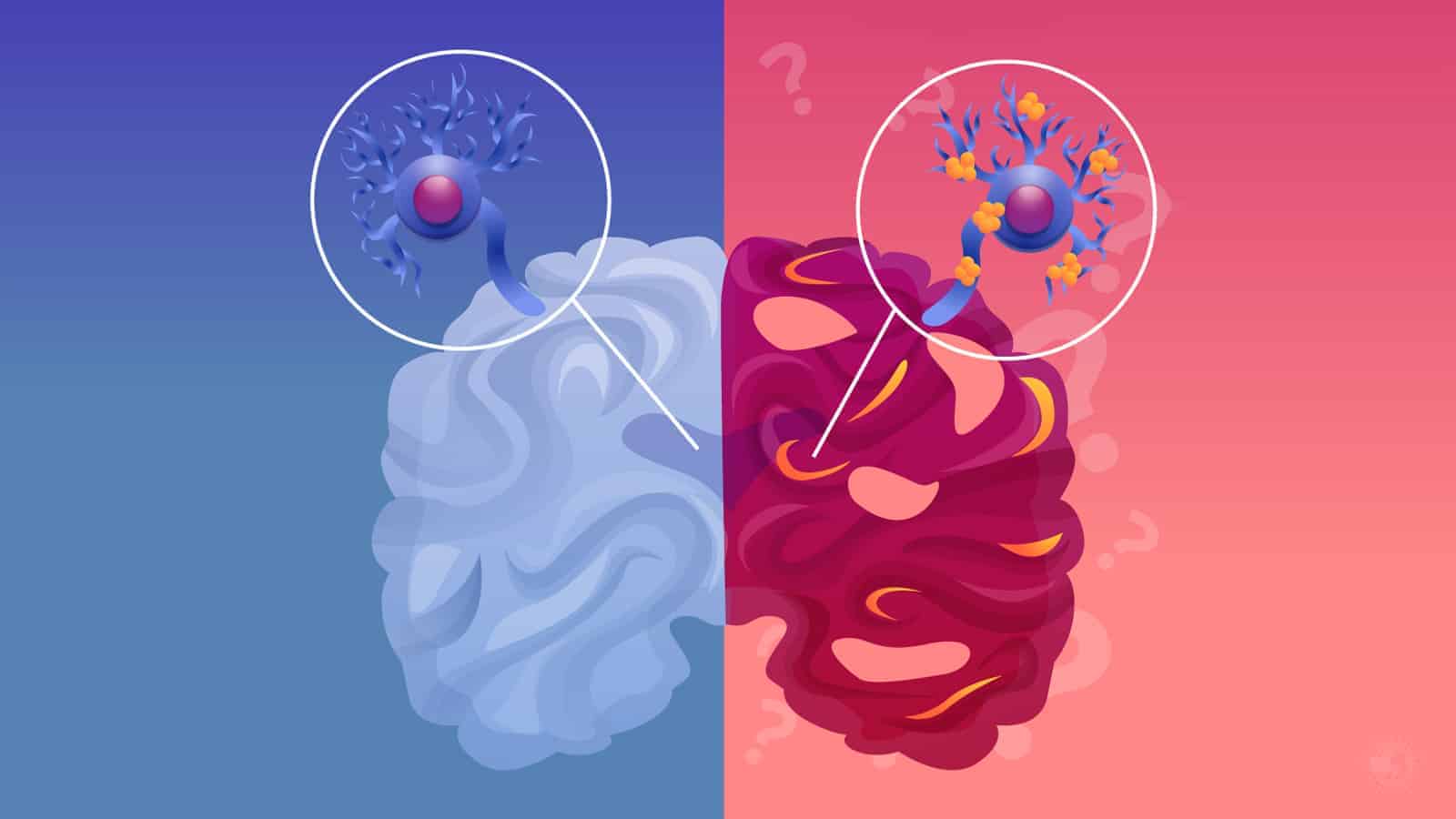By now, most people are familiar with early onset dementia and the fact that it’s incurable and has little to no treatment options available. If you’ve ever had a loved one who had dementia, you know how devastating the disorder can be. If you haven’t, thank your lucky stars.
Early onset dementia is, no doubt, a tough disorder on the afflicted person and those around them. Researchers have been feverishly working to understand more about it in hopes of finding something to combat the disorder.
That’s why this discovery from researchers at Trinity College Dublin is so exciting – it’s an important breakthrough that can lead the charge to some effective treatment. It’s important not to put the cart before the horse on this one, but the research is undoubtedly a significant advance in scientists’ understanding of early onset dementia.
What is Early Onset Dementia?
 Early onset dementia is, as the name describes – dementia that occurs earlier in life than dementia should (not that it should occur at all). Many people interchange the terms dementia and Alzheimer’s diseases. While they are related, they aren’t the same thing.
Early onset dementia is, as the name describes – dementia that occurs earlier in life than dementia should (not that it should occur at all). Many people interchange the terms dementia and Alzheimer’s diseases. While they are related, they aren’t the same thing.
Dementia is a blanket term that describes a disorder that causes significant cognitive decline. Alzheimer’s disease is a type of dementia, just as early onset is a type of dementia.
Many people associate dementia with memory loss. While memory loss is a part of dementia, it’s merely a symptom. Dementia occurs when a person’s brain cells stop functioning, stop connecting with other cells, and dies. This leads to many impaired functions besides memory. This includes problem-solving, decision-making, language and speech interpretation issues, emotional issues, and even personality changes.
While most people over the age of 80 have some mild form of dementia, getting it at a younger age leads to severe suffering as the brain has a longer time to decline than a person in their 80s. It’s a disorder that can make a person you’ve known all your life unrecognizable.
Terms and Information to Know
Before diving into the research, there are a few terms and some information you’ll need to be familiar with to understand it. The first one is the cerebrovascular pathologies. This refers to cerebrovascular diseases, which is essentially a blanket term for conditions that block blood flow to the brain. The word pathology refers to the cause and effects of a disease. For the research, think of the term cerebrovascular pathologies as meaning the causes of limited blood flow to the brain.
The second thing you need to know is that cerebrovascular pathologies lead to strokes, and strokes lead to dementia. According to the American Association of Neurological Surgeons (AANS), cerebrovascular disease is the most prevalent life-threatening neurological occurrence in the United States, and stroke is the third leading cause of death.
Another term you’ll come across is the blood-brain barrier (BBB). This is exactly what it sounds like. It’s a protective barrier that is extremely selective in what passes from the blood to the brain. In fact, it’s so protective that it’s been hard for scientists to create drugs that bypass this barrier. Neurological disorders and cerebrovascular disorders cause a breakdown in the BBB, resulting in central nervous system (CNS) degeneration that can lead to conditions such as dementia.
Other terms you should be familiar with are:
- Gene – a short section of DNA that contains instructions on how your body looks and operates.
- Alleles – a variant form of a gene, located in the same position as the gene on a chromosome. In humans, genes have two alleles (one from each parent).
- White Matter – a type of brain tissue that contains axons (nerve fibers).
- Tau – a protein found in abundance in the CNS. This protein is responsible for the stability of axons.
- ALSP – stands for adult‐onset leukoencephalopathy with axonal spheroids and pigmented glia. This is a rare form of dementia that is characterized by a breakdown of white matter.
- Macrophage – cells responsible for seeking out and destroying harmful bacteria, cells, and other harmful organisms.
- Amyloid‐β – a peptide (building blocks of amino acids) normally helps with neural growth and repair.
So far, all this information might make you feel like you’re in a college-level biology class. Don’t despair – being familiar with this information will make the rest of the article much easier to understand. The next section dives into the Trinity College Dublin research.
 The Groundbreaking Research from Trinity College Dublin
The Groundbreaking Research from Trinity College Dublin
Neurological diseases are almost impossible to treat because of the difficulty in creating pathologies for them. However, the team at Trinity College Dublin didn’t let this stop them as they have discovered a mutation that can cause a rare form of early onset dementia, ALSP. Led by Dr. Connor Delaney and Professor Matthew Campbell, this discovery is one of the most significant discoveries this decade.
Mutations cause ALSP in the colony-stimulating factor-1 receptor (CSF1R) gene. The mutation is what breaks down white matter in the brain. This breakdown leads to severe cognitive decline as early as the third or fourth decade of life (instead of more common forms of dementia, which generally hit people in their 60s).
Scientists had theorized that the cause of ALSP was due to overactive microglia cells in the brain. However, researchers used data obtained from patient samples and clinical trials to identify that dysfunctional white blood cells are responsible for the mutated CSF1R genes.
How the Process Works
The whole process is a bit complicated, but the bad white blood cells set off a chain reaction in the body that eventually leads to early onset dementia. The CSF1R is made up of alleles, like all human genes. These bad white blood cells cause at least one of the alleles to mutate and cause cerebral amyloid angiopathy (CAA). CAA is a harmful rise in the production of the amyloid protein.
The amyloid protein then harms the body’s macrophages, leading to a reduced ability to fight harmful cells and substances. One of those substances, amyloid‐β, is normally healthy for people, but it blocks blood flow to the brain in abundance. Without macrophages being able to clear the access amyloid‐β, a person is at risk for strokes, which will lead to dementia.
Why Microglia Is Vindicated
Do you remember earlier in the article where it was stated that scientists originally theorized that a breakdown in microglia was the culprit behind early onset dementia? Microglia is one type of microphage. However, the team’s research revealed that only CSF1R mutations from bone-marrow derived microphages are to blame. Microglia are found in the CNS (the brain).
How the Research Will Impact the Future
A big reason that no cure or effective treatment is available against dementia is that scientists didn’t understand the disorder’s cause. Sure, scientists were familiar with amyloid‐β being a big contributor, but that was general knowledge without much of an answer to why the disorder happens and progresses the way it does.
Research over the decades hasn’t been fruitless. Scientists continued to learn more and more, leading to the ability to understand what dementia patients go through. Because of this, stages of dementia have been established, and caregivers know what to expect in each stage. This allows dementia patients to receive the best level of care that they need for each stage.
This discovery changes the dark void that hovered over the answer to why – at least for this rare version of dementia. Being able to pinpoint the disorder’s exact origin means that they can focus more on a plausible cure or maybe even a way to prevent it altogether.
Of course, this lone research won’t be enough to eradicate ALSP, but it does give scientists some starting point. It also opens a theory to the cause of other forms of dementia. The hope is that scientists can take this discovery and expand it exponentially for more insight into the disorder.
 Final Thoughts on Early Onset Dementia
Final Thoughts on Early Onset Dementia
This disorder is one that is devastating to a person and their family. It’s unfair because it significantly reduces the number of prime years of a person’s life.
It’s scary, and there will be plenty of times when you feel helpless, especially when you know nothing, you can do to change things or make things better. Sometimes, even the strongest of people face the hardships that the disease brings.
Discoveries like the one made by the scientists at Trinity College Dublin may not be enough to save people who are currently suffering from the disorder. However, it offers a glimpse of hope for people in the future. Knowing that the world is one step closer to a solution is a breath of fresh air for anyone dealing with a loved one suffering from dementia.
















